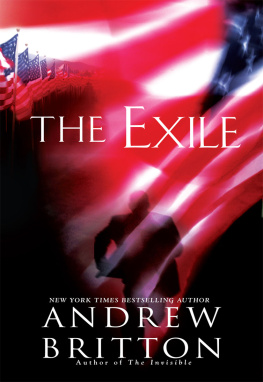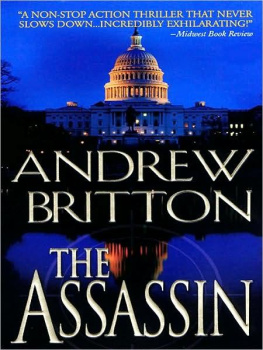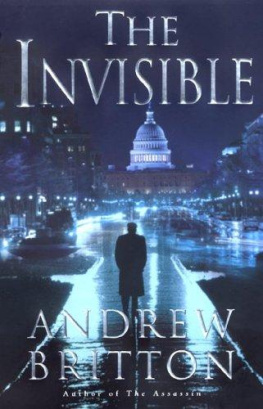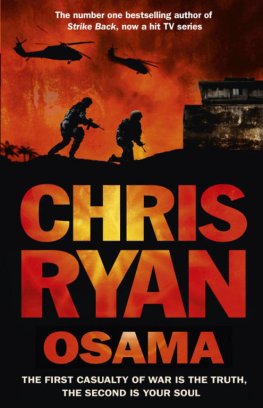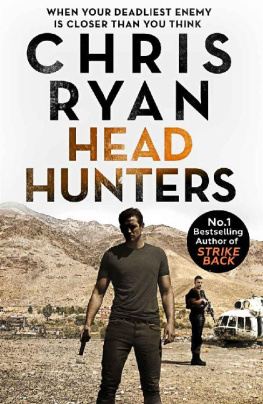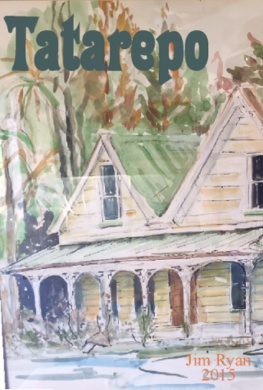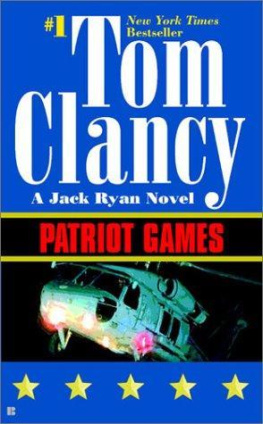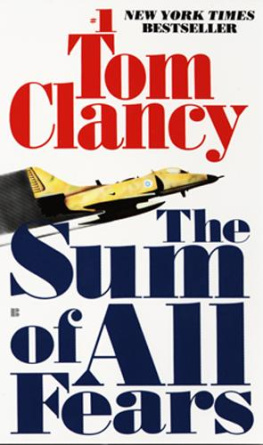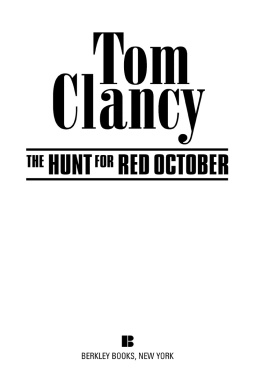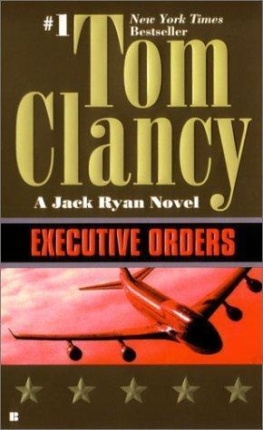For my mother, Anne
I would like to start by gratefully acknowledging Linda Cashdan of The Word Process. Linda proved almost prescient in her advice; even the suggestions I didnt take were later recommended by my publisher and ultimately found their way into the book. I couldnt have done it without her.
Special thanks go to Mark A. Jones of the Wake County Sheriff s Office, who was extremely generous with his time and knowledge; to Officer Rodney Parks of the D.C. Metro Police Department, for all of his insight; and to Erika Lease, M.D., for her wisdom and, more importantly, her friendship.
My heartfelt appreciation goes out to the talented team of professionals at Kensington: Steven Zacharius, the president and CEO, Laurie Parkin, Michaela Hamilton, and Wendy Bernhardt. I am also eternally grateful to my editor, Audrey LaFehr, for her boundless support and enthusiasm.
I owe a debt of gratitude to my literary agent, Nancy Coffey, who believed in this novel from the start.
And to Jeralyn Valdillez, for supporting me when the only thing I was writing was research papers.
WASHINGTON, D.C.
They whispered amongst themselves. For an announcement of lesser magnitude, they said, it might have been a more suitable venue.
It was natural for them to complain. Nothing less was expected by those who had organized the event; indeed, the interns who had arranged for the seating and distributed the press passes would have been stunned by anything approaching a compliment. When the frequent interruptions led to a substantial delay in the proceedings, few were surprised. Nevertheless, every effort was made to accommodate them. Additional chairs were brought in for the latecomers, and the proffered urns of coffee and pitchers of chilled water were re-filled at a near constant rate. Ornate chandeliers hung high above their heads, providing the requisite amount of light. The cameramen complained anyway, but to no avail. That the room might have been graced by natural light was never a consideration. The six massive windows were wired shut for security purposes, and draped in flowing burgundy curtains that perfectly matched the color of the carpet.
Above the sparkling crystal chandeliers, a forgotten pair of star-shaped balloons drifted absently across the gilded ceiling. Although the walls were missing the usual procession of paintings, they were replaced, and perhaps surpassed, by towering marble pillars in the Corinthian order.
For the most part, they agreed that the usual trappings of power were in evidence. What the room was clearly lacking, though, was space. They were wedged tightly against one another, and the shared discomfort was noticed by all. As the hearing progressed, however, the vocal complaints began to subside. Soon they were scribbling furiously and shooting pointed glares at those who continued to talk.
Finally, the hushed whispers faded away completely, and they listened with rapt attention to the man who was currently holding court, standing before a backdrop of his seated peers.
Today I believe we have reached a consensus among some of the most respected and influential people in Washington, including those whose input is vital to the presidents decision-making process. I am fully confident that he will react favorably to many of the conclusions the committee has reached this afternoon. Ill take one more question . . . I see you fidgeting over there, Susan. Lets have it.
A small peel of laughter rippled through the assembled crowd of print and television reporters as the CNN correspondent blushed slightly and posed her question to the man behind the podium.
Senator Levy, what do you hope to achieve by delivering this ultima-tum to the interim Iranian government, and do you see this administration going down the same path that led to a controversial outcome in Iraq?
The senator frowned at that last addition, a fact not lost on anyone present. First of all, our goal here is to make clear to those in power in Tehran that the United States will not sit idly by while preparations are being put in place to cause direct harm to the people of this nation. We have notand Id like to be very clear on this pointyet considered the possibility of armed conflict, or even the staging of troops in the region, for that matter.
Levy paused for a moment, ostensibly to give the impression that he was gathering his thoughts. In reality, it was just for effect. At this point, we have concrete evidence that Iran has restarted the process of refining uranium for use in nuclear weapons, proof that was lacking when the decision was made to remove Saddam Hussein from power. As it stands, the president has refused to recognize the new leadership in Tehran, and Iwesupport him fully in this decision.
Additionally, we now have tentative commitments from President Chirac of France and Prime Minister Berlusconi of Italy. Both leaders have assured us that, if some agreement for partial compensation can be reached, all companies in their respective countries with oil interests in Iran are prepared to terminate their contracts and pull out of the region at the earliest available opportunity. Although these implementations are predicated on talks that are scheduled to take place in late November, this is a huge step toward reinforcing the sanctions that are already in place. Let me assure you that our efforts to form a united front against Irans nuclear ambitions will not be deterred.
Levy paused again, the momentary lull inviting a wave of clamorous voices. Ignoring them, he focused his gaze on the attractive young correspondent in the third row. In response to the second part of your question, Susan, Id like to stress that were looking for strong U.N. participation in this matter. The proof of weapons production that I referred to is currently in the hands of the Security Council, and once the examination of that evidence is finished early next month, we expect that there will be a strong resolution and con-demnation of the actions that have been undertaken by the new regime. No, Im sorry, thats all, he said as another storm of voices erupted in his direction. Thank you for being here today.
Senator Daniel Levy stepped down from the dais amidst a flurry of questions that he had no intention of answering. A four and a half hour hearing was bad enough, but the raised voices of twenty-six fellow senators and the incessant blinding light of camera bulbs had left him with a throbbing head and a dull pain in his stomach. Levy was sure that his recently diagnosed ulcer was a direct result of the trouble brewing once more in the Middle East. The recent death of Ayatollah Khomeini, the supreme leader of Iran, had resulted in the appointment of an ultraconservative cleric on decidedly unfriendly terms with the United States. Despite his comments of a few moments ago, he was fully aware that the possibility of war in the region was once again looming on the horizon.
He left the Caucus Room and took a sharp right, moving at a brisk stride down two short flights of marble stairs. As he walked, he was joined by his chief advisor, Kevin Aidan.
So, were about to start this nonsense all over again, Levy said.
He ran a hand through his thick silver hair and spoke under his breath, ever distrustful of his small but highly efficient Secret Service detail. Members of Congress were not usually entitled to this level of protection, but as the Senate Majority Leader and the Chairman of the Senate Armed Services Committee, special attention was paid to his security, especially in the wake of recent events. We spent billions in Iraq so our citizens could be treated to images of their sons and daughters dying on network television. What the hell did we get in return, Kevin?


